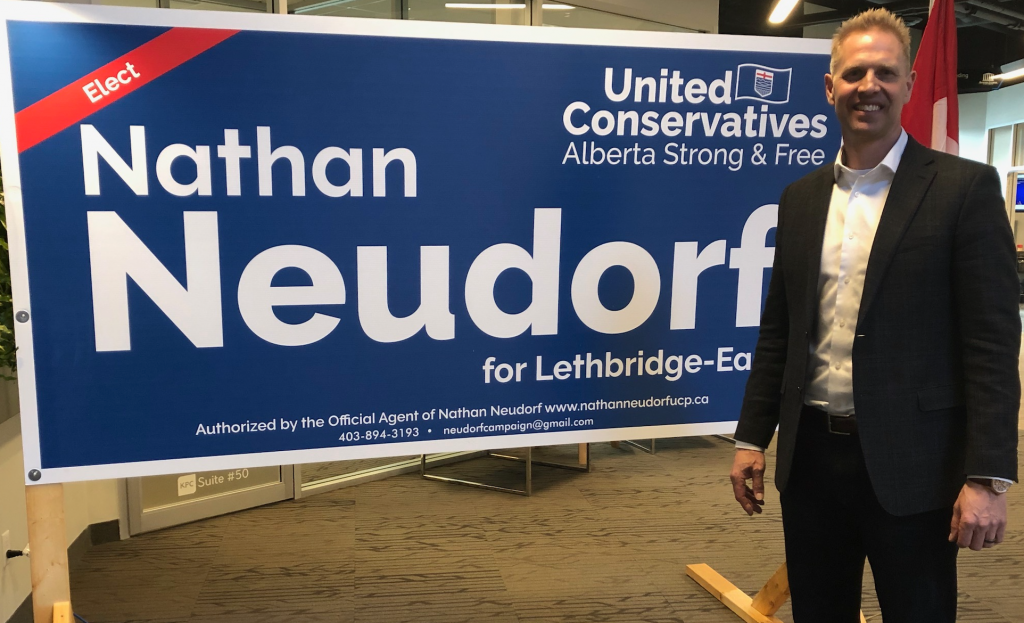Blog Post
UCP MLAs helped kill conscience protections for medical professionals last night, and it is time to make them pay
By Jonathon Van Maren
NOTE: THIS STORY IS STILL DEVELOPING. FURTHER DETAILS WILL BECOME AVAILABLE SOON.
Bill 207, which would have recognize the right of medical professionals to decline to participate in procedures that conflict with their consciences in Alberta, was killed last night at committee in an 8 to 2 vote—with four United Conservative Party MLAs voting against sending the conscience protections legislation on to debate.
The reason? Simple. Despite the fact that the legislation, put forward by Peace River UCP MLA Dan Williams, simply ensured that healthcare providers could not be disciplined or sued if they declined to provide a service that conflicted with their conscience, this was considered unacceptable by both Canadian progressives and the UCP cowards that enabled them. Those UCP MLAs, who will now possibly face nomination challenges, are Jeremy Nixon (Calgary-Klein), Nathan Horner (Drumheller-Stettler), Nathan Neudorf (Lethbridge-East), and R.J. Sigurdson (Highwood.)
Anyone who lives in those areas and is interested in getting involved to hold them to account for this decision, send me a message or say so in the comments. I will connect you with the efforts getting underway.
Additionally, UCP MLAs Peter Guthrie, Leela Aheer, and Doug Schweitzer campaigned against conscience protections in the media almost as loudly as the abortion activists and LGBTQ activists who want to force medical professionals to heed their commands. These people are worse than progressives, because they claim to be conservatives of some sort while denying a right so basic it is listed in the Canadian Charter of Rights and Freedoms.
This wasn’t even a debate about abortion or assisted suicide, simply about the right of medical professionals not to participate or refer to practices they accurately see as killing. But that’s not good enough, because in Canada, progressives want to force everyone to participate in some way. Of even more concern to those howling about the bill, apparently, was the transgender issue—they are concerned that Bill 207 would allow medical professionals to opt out of granting assistance or referral to kids who want to get sex changes.
If Canada’s so-called conservative movement is so terrified of progressives that they do not dare to stand up for the right of medical professionals to simply not participate and violate their consciences, in Alberta, with a United Conservative Party majority government and a socially conservative premier, then there really is nothing that can be accomplished politically until the conservative movement feels the sting. It is true that social conservatives are too small a group to win on our own. But we are a large enough movement to cost them nominations, leaderships, and entire elections.
They can’t win without us in the coalition, and it is now past time to illustrate that fact for them.









Appalled from Drumheller, will be sending Nate an e-mail!
This is so upsetting. As a health care professional I have the right to refuse unsafe work but not work I find immoral. Ugh.
This is terrible, but as I commented on Twitter, I’m most disappointed of all in Kenney for not taking ownership of this issue and bringing it forth as a government bill. If he’d done that and put the weight of his government’s communications resources behind it, they could have done much to shape the public narrative and the terms of debate instead of letting media pundits etc. do it all themselves. I can’t understand why, given his history and (I think) underlying values, Kenney didn’t want to spend ANY of his government’s still substantial political capital on this.
Because he has federal ambitions (he was in Ontario stumping hard for Scheer in the last election) and you can’t win federally with social conservative policies.
Is there actual data to support that, or just think pieces from the same talking heads that predicted a Scheer victory? Doug Ford ran as a social conservative and won a majority in the province federal Conservatives fell short in, sweeping the coveted 905 region. It should also be pointed out that unlike with social conservatives, Canada has never elected a formal provincial premier as federal premier.
Doug Ford’s victory was special and, I don’t think, generalizable to whether or not social conservatives can win on their own merits.
To answer your question specifically, the only data would be on the difference between the Doug Ford provincial election and the circumstances surrounding that contrasted with the recent federal election. There is no hard data showing that social conservatives lack a sufficient majority across Canada to form a government alone.
Doug was up against Kathleen Wynn, who had something like 11% popularity, and the liberals had been in power for far too long (I can’t recall off the top of my head, but it was more than a decade). There were many accumulated scandals and people wanted the liberals gone.
The vote for Doug was less about his policy (don’t forget he didn’t have a policy – he never published a platform before the election) and it was more about voting Wynn out. Furthermore, since the election he has cratered in popularity from 40% to 29% support and 71% disapproval. He is not popular at all and was hidden in the federal election.
In addition, when Scheer came along with social conservative policies, Ontario said no.
That all suggests to me that votes for Doug were actually votes against Wynn. That’s not generalizable to whether social conservatives can win on their own strength.
Finally, Jason Kenny came out of Harper’s federal Conservative government having held a number of cabinet positions over the years. With Kenny campaigning for Scheer outside of Alberta, it seems quite suspicious that he is trying to keep his profile up across Canada to jump back into federal politics.
Ontario wasn’t and isn’t a two-party system. The Liberals were going to lose, no question, but that doesn’t mean they had to elect Doug Ford to a majority government. They could have gone with the NDP (who were actually leading the polls at one point) or opted for a minority/coalition government of some sort. They didn’t, they went for a Ford majority.
Scheer hardly ran as a social conservative. Like Stephen Harper he promised to oppose any changes to abortion law (leaving it available on demand up to birth, courtesy of taxpayers) and we’re still not sure where he stands on allowing private member bills or funding illegal abortions through foreign aid. Meanwhile Lisa Raitt lost her seat, despite being as pro-choice as they come.
Jason Kenney did plenty of doorknocking in the GTA during the Harper years too, but left federal politics afterward. We can expect that he’d want an anti-carbon pricing prime minister to work with in Ottawa. Fact of the matter is still that provincial premiers never get elected prime minister, regardless of their stances on any social issues.
I really liked Neudorf and am very disappointed by this. I will be writing an email, but I would be interested in doing something to really stick that point in. It’s about time social conservatives get a bit of respect, too. Without us the UCP wouldn’t have won the election. My family gave up our time to door knock for the UCP.
We need a new definition of “conservative”! One that actually means holding to conservative values. We also need to stop calling those who would deny people freedom of conscience “progressives”. There is nothing progressive about that at all. It is a return to a totalitarian mindset which certainly does not lead to progress.
As a physician this article is misleading. All physicians currently have a right to refuse procedures or can refuse to provide care to individuals based on their values and morals. The difference is that physicians as public service agents must at least refer the client to someone who can address those issues. The bill would have removed that clause which would be problematic. It would allow, in its current format, discrimination ro occur, as anyone can refuse care to others and refuse to refer them on and not face discipline if they didn’t refer others. This is problematic as I have patients who have been denied care because they’re indigenous, refugees, or LGBTQ. As a conservative myself I find this bill abhorrent.
I specifically noted “referrals” in the article as well as participation. It has always been held that referring is also participating. “No, I won’t sell you cocaine, but that guy over there would be happy to.”
Just after 3 pm Dan Williams stood up on December 2nd to defend his Bill on Conscience rights. Before he was finished and the vote could take place someone committed suicide on the steps of the Leg. They adjourned the meeting.
Twice the death was lamented in the Legislature later in the evening. Twice members spoke up about the tragedy of the death pertaining to this suicide outside their building.
I don’t know if and when they will return to the bill on the rights of health care workers to refuse to refer people to be able to commit suicide.
Pray for the soul of the man or woman who died today. Pray for Alberta